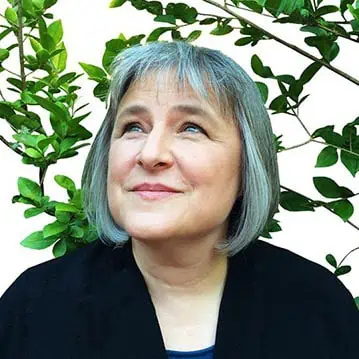
How to work with resistance
Dear < first name >
You may have noticed that I’ve been talking a lot about warmth and self-warmth in my last few emails.
This is because we humans are at our best when we are being held with affection and emotional warmth, either by ourselves or by other humans. (By “held” I don’t necessarily mean physically held–although that can be nice–but metaphorically held: enveloped with warmth, kindness and understanding.)
Emotional warmth is the experience of being met or meeting others with affection and welcome.
The importance of warmth is evident in our biology: all mammals have intricate touch receptors in our skin that register the closeness of other mammals. These touch receptors are different from other skin-receptors that register heat and warn us when we’re too close to a heat source. Mammalian touch receptors exist because mammalian wellbeing is predicated on being close and connected to other living beings.
What does emotional warmth feel like? Like gentle heat in our heart, spreading inside our chest and abdomen. This sensation comes with relaxation and comfort. It brings us a sense of belonging.
We block ourselves from feeling emotional self-warmth when we haven’t experienced humans to be a safe source of emotional warmth. Here’s a podcast where I go into depth about emotional warmth, and how we stop ourselves from self-warmth. I talk about this all in the first few minutes, and highly recommend taking a listen.
On a neuroscientific level, human nervous systems feel most safe and regulated when we know our voice is wanted. When we know that how we are, and what happens to us, genuinely matters to the people around us.
We mammals are quite literally wired for affection and togetherness.
According to the research of James Coan, we actively perceive the world differently when we imagine being accompanied by other humans who we trust!
Our nervous systems come into this world craving and needing the presence of other mammals. Our bodies exist in response to the bodies around them, at all times. We experience warmth when we know we matter.
The amygdala is always asking, “Am I safe, do I matter?” Stephen’s Porges’ entire body of work about the vagus nerve is proof of this: mammals are the most healthy when we are in social engagement! (For the curious, in this 1-hour lecture I explain the importance of social engagement for human mammals.)
There is a nervous-system level relaxation that comes when we have a sense of being liked and accepted.
When we have a sense of belonging and mattering in the world, everything becomes easier, we relax, and we move toward unflappability and a kind of sweet curiosity for ourselves and others.
Life is simply easier with warmth.
Sadly, we don’t live in a world where we receive this resonance from others reliably and consequently, many of us feel quite alone in our lives.
We live in a modern culture where criticism and competition have replaced belonging and mattering; a society of strangers, where it is rare to warmly know the people who we share space with: who live next door, down the hall, or even sometimes in the next room.
This non-relationality, or non-resonance, is so baked into our culture that it’s hard to notice how toxic it is. Self-hate, self-criticism, and self-judgment greatly diminish warmth. Spending time with people who roll their eyes at us, define or label us, or tell us how we feel – these all diminish warmth. Asking ourselves to be perfect diminishes warmth.
Of course our bodies don’t feel safe in a culture that doesn’t provide for our basic human needs for warm connection.
Many of us have learned that if we are struggling, it’s because there’s something wrong with us. We’ve learned that depression, anxiety, and other normal responses to not feeling safe, loved, and met with warmth are symptoms of dysfunction or illness.
We spend our lives thinking there’s something wrong with us, when really we’re just waiting for the thing our body is built for: warmth, belonging, safety and togetherness with others.
Humans are at our best when we feel warmth and affection in relation to those other bodies around us.
The surprise of being loved nurtures warmth, and we can give this delightful surprise to ourselves and each other. That is what this work is about.
Resonance is a healing practice for this evolutionary mis-match of living in a culture that isn’t built for the actual needs of the human bodies who live within it.
Resonance is something that we can do both in community and on our own. I’ll talk more about this in my next email.
With so much warmth,
Sarah

